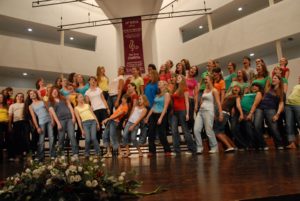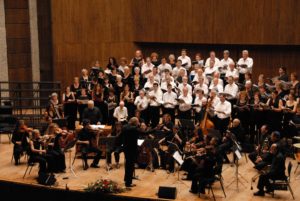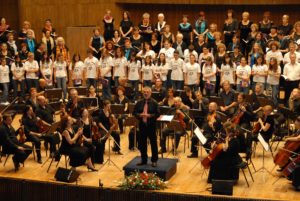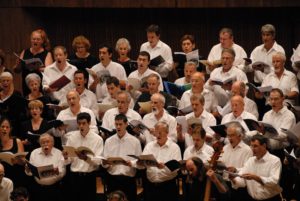The 22nd Zimriya
The 22nd Zimriya[1]
World Assembly of Choirs in Israel – 16-25 August 2010
Esther Herlitz, Festival Chairperson
Singing is very much part of the Jewish heritage. The priests sang in the holy Temple of King Solomon in Jerusalem. We find ample existence of this ritual in the Book of Psalms. Melodic prayers, often called “Piyutim”, remain part of synagogue services up to the present day.
During the 20th Century, choral singing was the expression of the urge for national independence in many parts of the world; it likewise accompanied the Zionist movement. The early settlers in pre-state Israel revived choral singing and also encouraged the writing of new choral music. Much of this new music was influenced interestingly by Mediterranean tunes and is still happily sung at social gatherings.
The Zimriya, founded in 1952, is one of the earliest international choral gatherings, if not the very first. It was a man of great vision, Aharon Zvi Propes, who founded the Zimriya, as he did the Israel Festival and the International Harp Contest in Israel, events he presided over until his death and which continue today. Mr. Propes was familiar with large choral meetings in Riga, where he was born. He was not a musician, but realized the importance of international cultural exchanges for the old-new state of Israel.
Today the Zimriya is an international tri-annual musical event, taking place in Jerusalem on the beautiful campus of the Hebrew University on Mount Scopus. The Zimriya hosts choirs from such distant countries as Iceland and South Africa, Sweden and Korea, as well as many Israeli ensembles. A number of prominent musicians serve on the Zimriya’s International Honorary Committee; Daniel Barenboim, Lupwishi Mbuyamba, Kurt Masur, Frieder Bernius, Paul Wehrle and others.
The Zimriya has great many advantages: choirs have the rare opportunity to work with outstanding conductors and with orchestras. The choirs’ repertoire is enriched through participation in various workshops. This multicultural meeting not only enriches musically singers but helps build mutual harmonious relations between people of different backgrounds, religions and languages.
Days at the Zimriya are very full. Participants hardly have time to enjoy the breathtaking view of Jerusalem from Mount Scopus. Workshops take place mornings and afternoons and the evening programme is twofold: Open Singing and Choir to Choir Singing, an Israeli invention that gives each choir a short opportunity to present itself to a friendly yet critical audience.
The Music Committee of the Zimriya, headed by Michael Shani, has invited the conductors listed below to lead workshops on different kinds of music. None of these internationally known figures is paid, and they simply volunteer their talent and time, as does the organizing team. We must be grateful to them all.
Anton Armstrong (USA) Afro-American Spirituals
Timothy Brown (UK) Romantic Music
Aharon Harlap (Israel) Jewish and Israeli Music
Volker Hempfling (Germany) Mozart: Mass in C minor
Theodora Pavlovitch (Bulgaria) Rhythms from the Balkans to Jazz
Stanley Sperber (Israel) Mendelssohn – Psalm 42
Michael Gohl (Switzerland) Songs of all Nations
The Zimriya is a truly international event where great music is made in harmonious mood. Shalom and Welcome to you all.
[1] Hebrew for “Song of God”
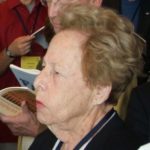 Esther Herlitz is a former Ambassador and a sometime member of the Knesset; she was the Director of the Zimriya from 1983 and remains its chairperson.
Esther Herlitz is a former Ambassador and a sometime member of the Knesset; she was the Director of the Zimriya from 1983 and remains its chairperson.
Web: www.zimriya.org.il
E-mail: harzimco@netvision.net.il
